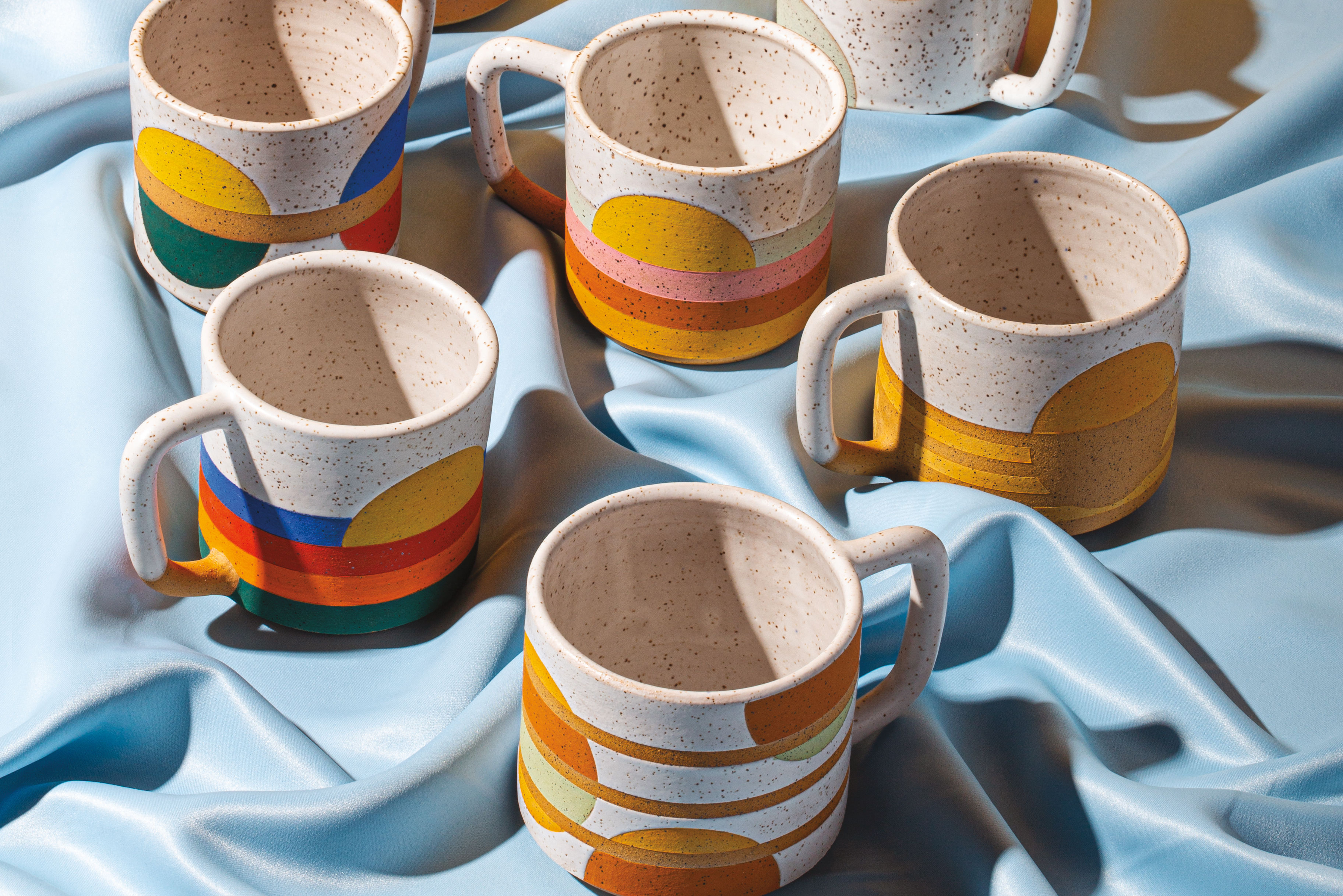Roll the Dice on these 4 New Portland-Made Board Games
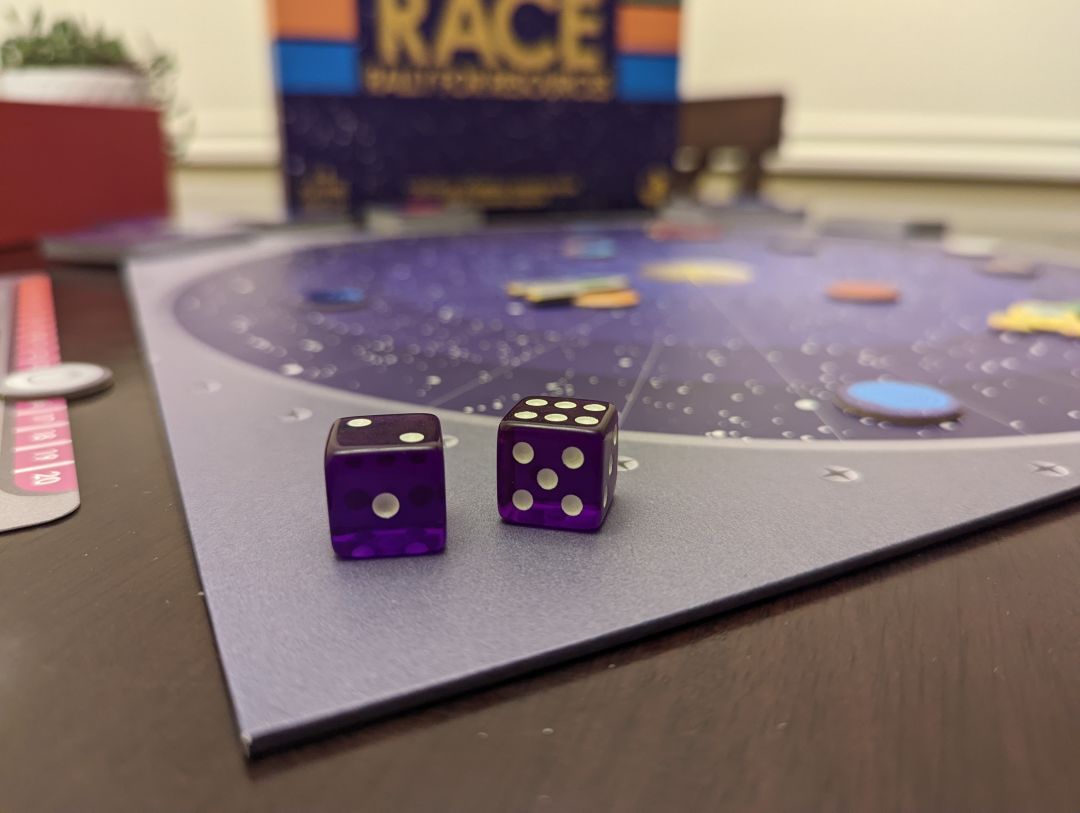
A sneak peek at Space Race, a new game from Portland-area game developers.
Image: Courtesy of Andrew Watson
Quarantines, lockdowns, social distancing and the like may be so 2021, but there’s one trend we're glad to see sticking around: The surge of interest in hobbies that are niche-y, nerdy or both, from puzzles to ceramics to the ever-popular board game.
Even better news: It’s almost peak board game season here in Portland. When the weather invariably turns cloudy and rainy, many Portlanders retreat to movie theaters and bookstores and game nights.
Here then are four new(ish) board games from local makers to add to your shelf this fall. (Or get your hands on one and bring them with you to one of Portland’s great game cafés.)
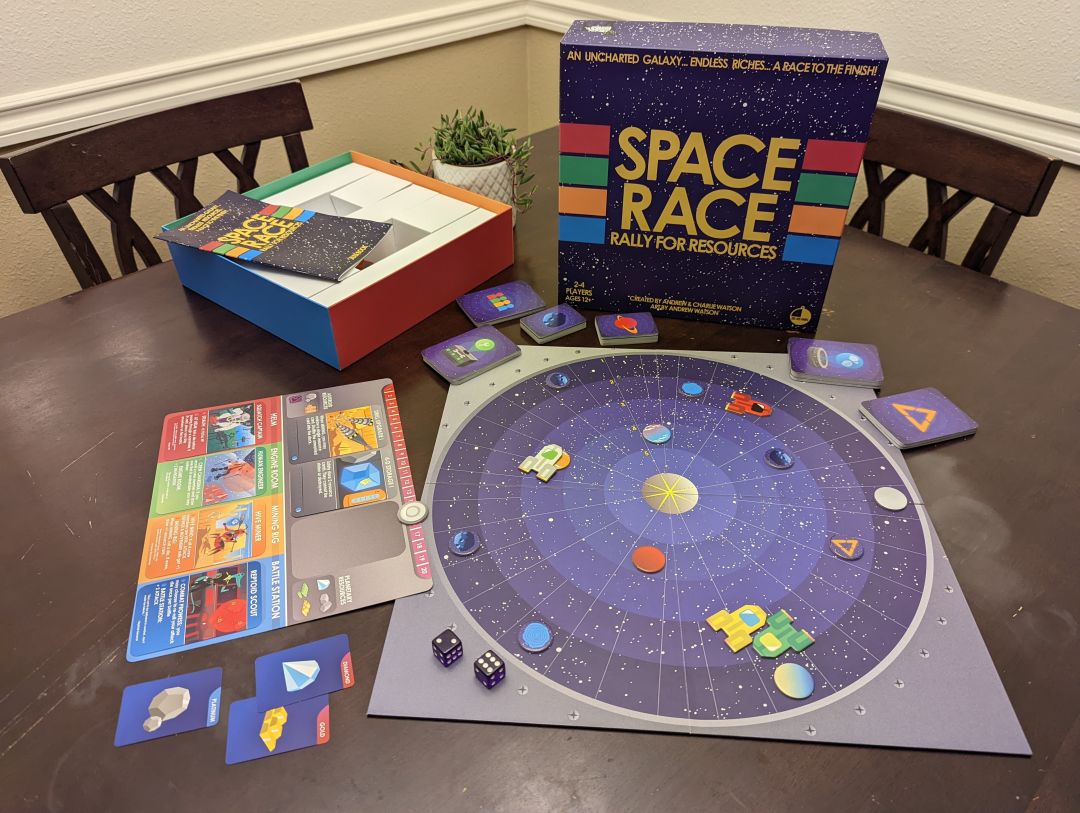
Space Race: Rally for Resources, all laid out and ready for play.
Image: Courtesy of Andrew Watson
Space Race: Rally for Resources
This is the first game from Black Labrador Games, a Lake Oswego-based company from brothers Charlie and Andrew Watson, long-time science fiction fans who were looking for a creative way into that universe.
“It started with some art I was doing in my spare time, which we wanted to make into a TV show,” says Andrew Watson, a graduate of the University of Oregon’s product design program. “The idea changed to a table-top game as it was more in our wheelhouse. We love board games, and we’ve been playing them for as long as we can remember, so we figured we’d give it a shot.”
The two spent six years noodling around with their idea, testing and retesting, before their market launch this fall. They’re starting on Kickstarter, with plans for a holiday season release, and then plan to sell online, direct to gaming enthusiasts, and look for distributors.
Per Watson, the object of the game is to build a crew and compete with up to three other players, racing through an uncharted galaxy (no doubt one far, far away) and mine for resources. Upgrade your ship or “hire” new crewmembers to get a leg up over other players. Watson did all the artwork himself, and notes that the game board is customizable and set up by players, so it changes every time you play. Set aside 20-45 minutes for a full round of play.
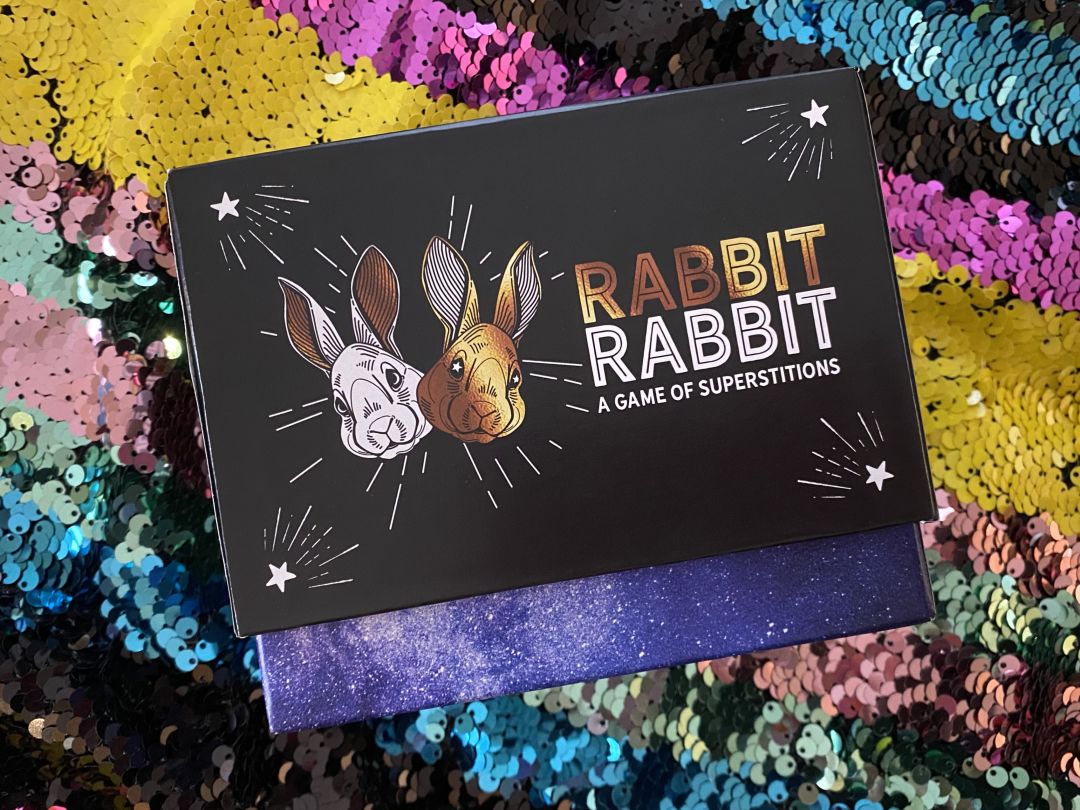
Rabbit Rabbit is a game of myths and folklore.
Image: Courtesy Pink Tiger Games
Rabbit Rabbit: A Game of Superstitions &
Lost for Words: A Game of Untranslatable Feelings
Both of these are from Pink Tiger Games, game designer Ami Baio’s Portland-based studio that specializes in “sweet, kind games.” Baio first came to the game-playing world’s notice with You Think You Know Me, a card game aimed at encouraging players to go beneath the social media glossed surface and find out what they really knew about their friends. Her goal, she says, is to make games that make players feel “seen and heard, games that inspire conversation and connection.” Bonus: Her games are designed to be easy to pick up, and don’t come with a encyclopedia-length rule book.
In other words: No warlike Battleship or the cruelly random twists of fate that await in Chutes and Ladders to be found here. Rabbit, Rabbit is a trivia card game for up to 10 players that celebrates global myths and ancient folklore. (The name will be familiar to anyone who blearily mutters “rabbit rabbit” immediately upon awakening on the first of any month—that brings good luck, of course. IYKYK.) The box includes 350 cards, each one with bonus trivia and context to share after the question has been answered. Illustrations are by local Portland tattoo artist Kirsten Holliday.
The game was inspired by an article she’d read on worldwide New Year’s traditions, and developed at the very start of the pandemic. “I felt inspired and connected by the knowledge that since the beginning of time, humans all over the world have been wishing on stars, sweeping away bad luck, and so many more—trying to make sense of life and the universe,” she says.
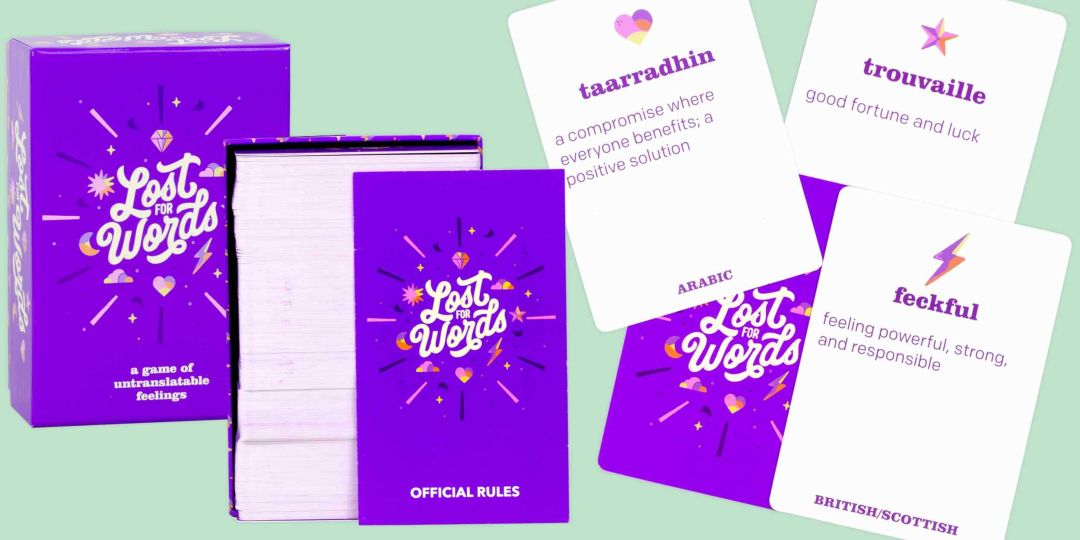
A sneak peek at Lost for Words.
Image: Courtesy of Pink Tiger Games
Rabbit, Rabbit is available now, while Lost for Words is set for release in November after the conclusion of a successful summer Kickstarter that brought in well over its $8,000 goal. Aimed at between two and seven players, it’s a card game spotlighting 300 words from 70 different languages, each one representing a different emotion or experience that’s not easily translatable to English. (Think schadenfreude. Know it when you see it, couldn’t say what it actually means.)
You play the game by sharing your experiences with that particular feeling; Baio also teases “additional action cards” to make the game, in her words, “lightly strategic.” Fun fact: Lost for Words is her first co-designed game, made with her teenaged son, Eliot.
The Landlord’s Game
This one isn’t exactly new. It’s more of a reboot and update, of the 1906 game designed by feminist Elizabeth Magie, identified by Monopoly historians as that game’s “lost female originator” who fought Parker Brothers to be credited as its rightful creator. Magie’s intention was to warn about the evils of monopolization and spotlight the economic inequalities of Gilded Age life.
Her game was most recently revived by a Portlander called Thomas Forsyth, who is the owner and manager of yourPlay, the official publisher and distributor of the modern-day Landlord’s Game. In 2019, yourPlay began selling a faithful replica edition of the 1906 version of The Landlord’s Game. That’s sold out, but now an updated version is available for pre-order, with more “user friendly” components. (Follow them at @LandlordsGame on Twitter for updates.)
In the replica edition, the rules sound similar to Monopoly at first glance: “The object of the game is to get as much wealth as possible, and the player who has the most in cash, cards, and houses at the end of the game is the winner or millionaire.”
But look closer: When was the last time you pulled a card in Monopoly which allowed you to purchase “Lonely Lane” for $25 and contained the following quote: “The single tax would immediately establish equal opportunities—the dream of the ages.”
